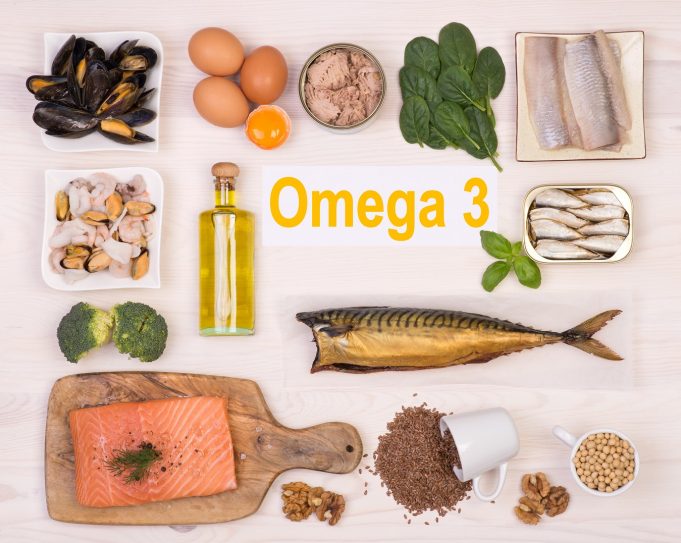Omega-3 essential fatty acids promote good health
Omega-3 essential fatty acids are vital to life and good health; they protect against disease and can treat illness. Omega-3 EFA’s are fundamental molecules in the structure and activity of the membranes of all cells throughout the body. They also have highly specialized functions in neurological tissues, especially the brain and retina. Because of their role in cell membranes, omega-3 fatty acids are vital for the formation of new tissue and are hence important for development and growth.
What Is Omega-3?
 Omega-3 fatty acids are a form of polyunsaturated fats, one of four basic types of fat that the body derives from food. (Cholesterol, saturated fat, and monounsaturated fat are the others.) All polyunsaturated fats, including the omega-3s, are increasingly recognized as being indispensable to human health.
Omega-3 fatty acids are a form of polyunsaturated fats, one of four basic types of fat that the body derives from food. (Cholesterol, saturated fat, and monounsaturated fat are the others.) All polyunsaturated fats, including the omega-3s, are increasingly recognized as being indispensable to human health.
Eating too many foods rich in saturated fats has been associated with the development of degenerative diseases, including heart disease and even cancer. Polyunsaturated fatty acids, however, are good for you. Omega-3 (found primarily in cold-water fish) fall into this category, along with omega-6, another type of polyunsaturated fatty acids found in grains, most plant-based oils, poultry, and eggs.
Omega-3 plays an important role in all-round well-being. Scientific research and clinical studies conducted all over the world show that supplementing Omega-3 fatty acid may help in the following conditions:
- Hair loss
- Dandruff
- Loss of vision
- Improper digestion and gas
- Low metabolic rate
- Sexual disorders
- Infertility
- Post menstrual syndrome
- Poor kidney function
- Tissue inflammation
- Osteoarthritis
- Painful joints and muscles
- Eczema and psoriasis
- Premature wrinkling of the skin
- Fatigue and lack of energy
- Lack of memory
- Inability to concentrate
- Mental depression
- Anxiety and stress
- Frequent colds and infections
 Get your daily dose of Omega-3
Get your daily dose of Omega-3
Marine sources: Salmon and other fatty, preferably cold-water fish, including herring sardines, tuna, and mackerel. The American Heart Association recommends that people eat tuna or salmon at least twice a week. Fish oil and krill oil are good sources of Omega 3.
Plant sources: Canola oil, flaxseed, flaxseed oil, walnuts, and leafy green vegetables are all good sources of alpha-linolenic acid (ALA), the plant-based omega-3. Nuts and seeds are good sources too.
If you need to supplement your intake of Omega-3, you could look at commercial fish oil capsules and vegetarian capsules are available containing Omega-3s like DHA and EPA. But remember, never ever self-medicate. Consult your doctor before taking any supplements.












































